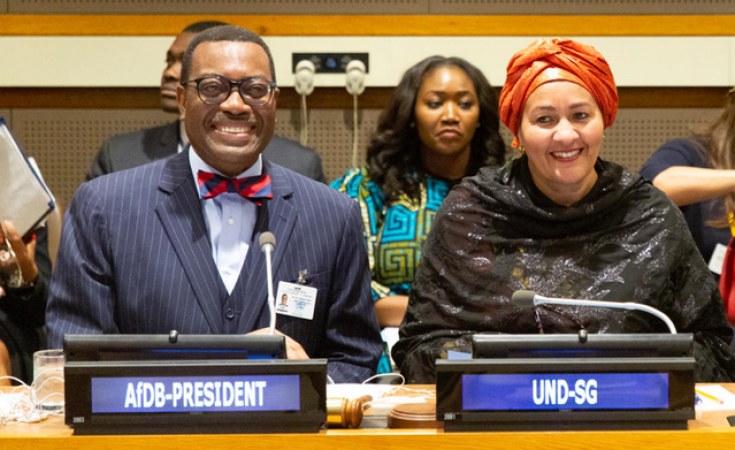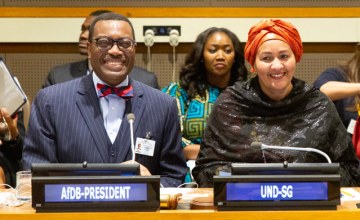African women are on the cusp of securing gender equality. "We are convinced that the moment for African women has now come," said Antoinette Sassou Nguesso, the First Lady of the Republic of Congo.
Nguesso made the remarks on Tuesday at a meeting of the Organization of African First Ladies for Development (OAFLAD) on the sidelines of the UN General Assembly.
"The tiger doesn't claim its tigerhood, and it has to act like a tiger," Nguesso, president of OAFLAD, said in French via an interpreter.
"I urge all African women ... to make sure that by 2030, we will obtain for all African children the right to have a quality education, benefit from effective medical care, and have decent work."
According to the African Development Bank, some 125 million African girls and young women are married before the age of 18. One in 10 girls is wed before the age of 15, keeping them out of classrooms and hurting their job prospects.
Dereje Wordofa, deputy executive director of the United Nations Population Fund (UNFPA), outlined gains being made for Africa's women. There has been a 40 percent drop in childbirth deaths these past two decades.
Still, some 200 African women lack access to family planning, and such problems as fistula and female genital mutilation persist, while there is not enough screening and treatment for cervical cancer, said Wordofa.
She said women continued to suffer as a result of extremely fragile health systems, low literacy, limited access to modern transport.
According to the African Development Bank, women make up 52 percent of Africa's population, but three-quarters of the labor force in agriculture, and produce as much as 80 percent of the continent's food.
African Development Bank President Akinwumi Adesina told the meeting that his institution had made substantial progress towards raising $3 billion to help women entrepreneurs access money to grow their businesses.
Adesina said the "largest such effort for women on finance in Africa's history" had raised millions of dollars in recent months.
The scheme, known as the Affirmative Finance Action for Women in Africa (AFAWA), will help plug the $42 billion financing gap between women and men.
"An economically empowered mother will empower her children and especially her girls. They will help them to achieve their full potential," Adesina told delegates at the United Nations in New York.
The meeting addressed child marriage, sexual violence, and other threats faced by the continent's 630 million women.
"Let's be clear, and women run Africa. Go to any market, the majority of the traders there will be women. Yet women are marginalized when it comes to access to finance to grow their businesses," said Adesina.
African women spend 90 percent of their earnings on feeding, schooling and providing healthcare to their families -- much higher than the 35 percent that the continent's men spend.
According to the Food and Agricultural Organization, with better access to finance, women farmers could produce 20-30 percent more food than they currently do, which would mean 150 million fewer hungry people across the continent.
"It is harder for women to secure access to finance, even though the evidence suggests that they have over 95 percent repayment rates for credit. I won't tell you what men do with their own money," said Adesina.
For more on the African Development Bank at UNGA2019, click here



